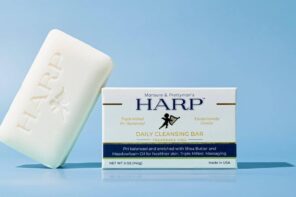Kaitlin Tilotta—author, scholar, and entrepreneur—issued a stark warning as she unveiled Yeah Skincare, a European-manufactured line formulated with clean ingredients and free from the steep markups often caused by international tariffs. At the heart of her message is the “Make America Clean Again” initiative, a call for both policymakers and individuals to confront how regulatory gaps have eroded public health in the United States—especially when measured against Europe’s stricter standards.
Higher Safety Standards
Tilotta is recognized for her work in psychology and her writing, including “The Psychedelic Diaries,” which documents her experience researching psychedelic healing and navigating unconventional professional paths. Her upcoming autobiography further explores the challenges she’s faced and her decision to advocate for safer personal care.
This advocacy comes from the realization that the United States restricts only a handful of cosmetic ingredients, 11, while Europe bans over 1,300 identified as hazardous. Through Yeah Skincare, Tilotta aims to offer American consumers products that meet European safety benchmarks, narrowing a gap that she feels has left too many exposed to risks that could easily be prevented.
Hygiene as Public Health
Moving past the gloss and glamour often associated with the beauty sector, Tilotta insists that hygiene needs to be seen through a public health lens. She cautioned that overlooking basic cleanliness standards opens the door to diseases long thought contained. Her campaign is not meant to instill fear, but to show the consequences when sanitation regulations fall behind scientific consensus.
The resurgence of illnesses like the plague, typhus, and Legionnaires’ disease underscores the cost of neglect. Tilotta stresses that without strict hygiene laws and ingredient reform, outbreaks will continue to strike hardest in crowded, low-income, and immigrant communities already bearing the weight of vulnerability.
Accessibility and Overcoming Economic Barriers
Yeah Skincare’s business model disrupts the practice of inflating prices for European formulations by importing products in bulk and distributing them within the United States.
Tilotta’s strategy is to bridge the gulf between consumer demand and shipping realities, presenting high-quality skin care without the delays and tariffs that traditionally increase costs for American buyers. With clean beauty markets worldwide projected to surpass $21 billion by 2030, Tilotta aims for Yeah Skincare to stand out for its accessibility and robust regulatory compliance, initially focused on the U.S. before expanding to new countries.
Advocating for Sweeping Policy Changes
Rather than stopping with improved product quality, Tilotta is pushing for renewed hygiene laws and meaningful oversight. Decades of public health improvements, aided by strict regulation, have dramatically reduced deadly outbreaks in the past; Tilotta wants to restore and strengthen those protections now. She challenges policymakers to adopt rigorous standards and explicitly urges regulatory agencies to learn from Europe’s more comprehensive method to consumer safety, authorizing research on emerging risks and publicizing the dangers posed by ineffective oversight.
Caring for Hygiene Laws
Tilotta sees her efforts as laying the foundation for change that stretches well past national boundaries. She advocates for uniform hygiene laws and ingredient policies, encouraging countries to cooperate on public health goals to benefit everyone. The contrast between strict European requirements and less demanding U.S. regulations, she argues, should motivate authorities to update their standards worldwide, protecting not just current populations but future generations as well.
Tilotta’s writing, scholarship, and stewardship of Yeah Skincare reflect a philosophy built around resilience and practical solutions to widespread problems. By linking deeply personal experience with the science of public health, she aims to make clean, safe, and effective products more broadly available while inciting public debate about the responsibility governments and industries hold to prevent avoidable risks. Her work stands as an invitation for collective action, pushing for cleaner and safer personal care as a shared responsibility and a vital matter of national protection.





